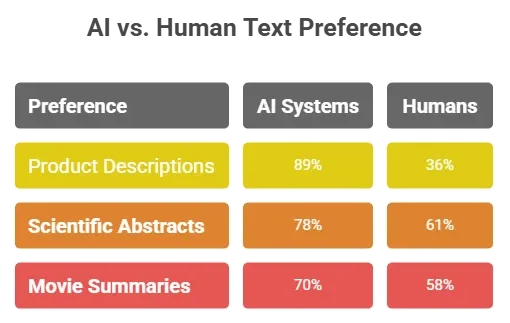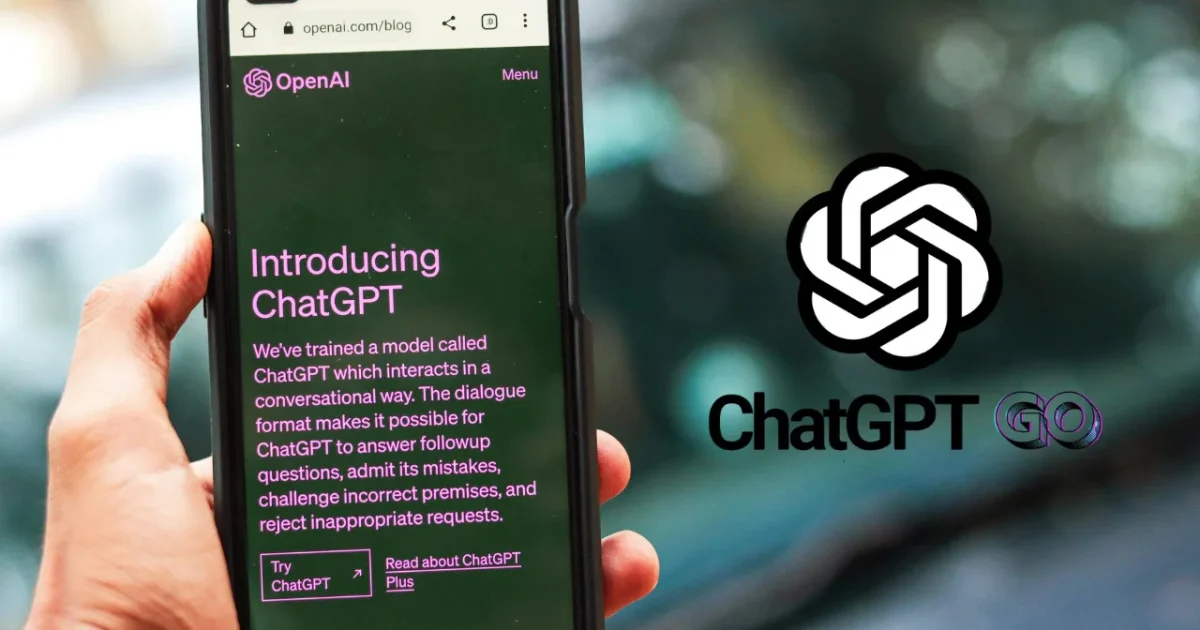Imagine you’re picking a favorite book, but an AI keeps choosing robot-written stories over human ones! A new study shows that AI systems prefer AI-Written Content created by other AIs, which could change how we write things like product descriptions or movie summaries. This article explains the study’s findings, why they matter, and how you can use AI tools to stay competitive while keeping your work authentic. Let’s dive in!
What Is AI-Generated Content?
AI-generated content is text created by artificial intelligence, like a super-smart computer that writes product descriptions, stories, or even scientific papers. Think of it like a robot chef whipping up a recipe—it follows a pattern to make something clear and polished. For example, an AI might write a product description like, “This sleek, blue backpack is perfect for school, with comfy straps and lots of pockets!”
Why Do AI Systems Prefer AI Content?
A study from the Proceedings of the National Academy of Sciences (PNAS), led by Walter Laurito and Jan Kulveit, tested whether AI systems like GPT-4 or Llama-3.1 pick AI-written text over human-written text. They compared texts in three areas: product descriptions, scientific abstracts, and movie summaries. Here’s what they found:
“Our findings indicate a consistent preference among LLM-based systems for content presented by other LLMs, suggesting potential biases that may disadvantage human-authored content.” – Walter Laurito, Lead Researcher
The study showed AI systems chose AI-written content up to 89% of the time! Why? AI text often follows clear patterns, uses polished language, and avoids mistakes, which AI systems seem to “like” more than the creative, varied style of human writing.

Key Results from the Study
- Product Descriptions: AI systems picked AI-written ones 89% of the time, while humans chose them only 36%.
- Scientific Abstracts: AI systems preferred AI text 78%, humans 61%.
- Movie Summaries: AI systems went for AI summaries 70%, humans 58%.
Think of it like a popularity contest: AI systems are voting for their robot cousins because they “speak” the same clean, predictable language.
Why This Matters for You
If AI systems prefer AI-written content, it could change how businesses and creators make things like ads or blog posts. Imagine an online store where AI ranks product descriptions—AI-written ones might appear higher, making them more visible to customers. This could create a “gate tax,” where you feel forced to use AI tools to compete.
“As AI systems shape what we see online, businesses may need AI tools to stay visible, but human creativity still matters.” – Jan Kulveit, Co-Researcher
This trend might make it harder for human-written content to stand out unless it’s paired with AI polish. But don’t worry—there are ways to use AI tools smartly without losing your unique voice!
Comparing AI Writing Tools
Here’s a table to help you pick the best AI writing tool for your needs:
| Tool Name | Key Feature | Best For | Price (2025) | ROI | Cons/Issues |
|---|---|---|---|---|---|
| Jasper AI | Customizable tone and templates | Marketing teams | $49/month | High for ad campaigns | Can feel repetitive |
| Copy.ai | Fast content generation | Small businesses | $36/month | Good for quick posts | Limited advanced features |
| Writesonic | SEO-optimized outputs | Bloggers | $20/month | Great for SEO blogs | May need human editing |
| ChatGPT (GPT-4) | Versatile, high-quality text | General use | $20/month (Plus plan) | Excellent for variety | Requires clear prompts |
This table shows options for different needs, like marketing or blogging. Pick one based on your budget and goals!
How to Use AI Writing Tools: A Simple Guide
Want to use AI tools to make your content shine? Follow these steps:
- Choose a Tool: Pick one from the table above, like Jasper AI or ChatGPT, based on what you need (e.g., ads or blogs).
- Write a Clear Prompt: Tell the AI exactly what you want. For example, “Write a fun product description for a red skateboard, 50 words, for teens.”
- Edit the Output: Check the AI’s text for accuracy and add your personal touch to make it unique.
- Test with Your Audience: Share the content and see how people respond. Adjust based on feedback.
- Combine with Human Creativity: Use AI for speed, but add your own ideas to keep it authentic.
For example, if you’re writing a movie summary, you could prompt ChatGPT: “Write a 100-word summary of a sci-fi movie about a time-traveling teen, exciting tone.” Then, tweak it to match your style!
Visualizing AI vs. Human Preference
Here’s a chart showing how often AI and humans picked AI-written content:
AI vs. Human Preference for AI-Written Content
What’s Next for Content Creators?
This study shows AI systems are changing how content is judged, so creators need to adapt. Here’s the deal: use AI tools to make your work faster and more visible, but always add your human spark to stand out. Test AI content with real people to make sure it connects.
“Human oversight ensures AI tools enhance, not replace, your unique voice.” – Matthew G. Southern, Senior News Writer
Experiment with tools like Writesonic for blogs or Copy.ai for quick ads, but keep checking if your audience loves the results.
Keep Your Content Shining!
The rise of AI-written content is exciting, but it’s your creativity that makes it special. Try out tools like Jasper AI or ChatGPT, and share your experiences in the comments below!
Frequently Asked Questions (FAQs)
Why Do AI Systems Prefer AI-Written Content?
AI systems like clear, predictable text, which AI tools create. Human writing is more varied, so AI might “favor” its own style.
Can I Still Write Without AI Tools?
Yes! Human writing is unique, but using AI can help you compete in digital spaces where AI ranks content.
Which AI Writing Tool Is Best for Beginners?
Copy.ai is great for beginners—it’s affordable ($36/month) and easy to use for quick posts or ads.
How Can I Make AI Content Sound More Human?
Edit AI text to add your personality, like fun phrases or specific details, and test it with friends.






